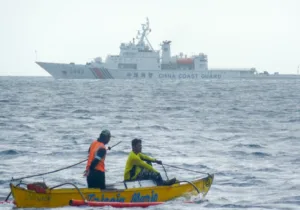Bangladesh is building one of the world’s largest refugee camps to house the hundreds of thousands of stateless Rohingya people fleeing Myanmar. Here’s what you should know about what the UN Refugee Agency calls the fastest-growing refugee emergency in the world today.
What’s the Rohingya crisis?
Since August, more than half a million Rohingya people have fled to Bangladesh to avoid persecution and ethnic cleansing in their home in the northern Rakhine province of Myanmar (Burma). According to the BBC, of the 537,000 refugees who have arrived in the camps since August, 58 percent are children and 60 percent of the adults are women.
The latest crisis began when the Arakan Rohingya Solidarity Army (ARSA) attacked more than two-dozen police posts, killing twelve police officers. In retaliation, local Buddhist mobs reportedly burning the Rohingya villages, attacking and killing civilians.
Amnesty International claims the Myanmar military has killed hundreds of Rohingya and raped and abused Rohingya women and girls.
Human Rights Watch says that 288 out of 866 Rohingya villages and at least 1,500 buildings have been destroyed.
Who are the Rohingyas?
The Rohingya people (historically know as Arakanese Indians) are an ethnic group with significant populations in Bangladesh, Myanmar, Saudi Arabia, Pakistan, Malaysia, India, Indonesia, and the United States. The Rohingya are majority Muslim, with a minority that is Hindu. In 2013 the United Nations designated them as one of the most persecuted minorities in the world.
What is the Arakan Rohingya Solidarity Army?
The Arakan Rohingya Solidarity Army (ARSA), formerly known as Harakah al-Yaqin, is a Rohingya militant group which formed in 2016 with the stated goal of creating a “democratic Muslim state for the Rohingya” in Myanmar.
The group claims to be an ethno-nationalist group that has no ties to transnational jihadist terror groups. The Myanmar authorities, however, claim ARSA is Muslim terrorist organization that wants to impose Islamic rule.
What is the international community doing about the crisis?
The European Union called the humanitarian situation “extremely serious” and said, “There is an urgent need to de-escalate the situation, re-establish law and order and ensure the protection of civilians.”
On Wednesday, U.S. Secretary of State Rex Tillerson made a similar statement, saying the U.S. considered Myanmar’s military leadership responsible and that he was “extraordinarily concerned” about the situation. A bipartisan group of forty-three U.S. lawmakers has urged the Trump administration to re-impose U.S. travel bans on Myanmar’s military leaders and prepare targeted sanctions, but the State Department has not yet said what offensive actions will be taken.
—
Joe Carter is an adjunct professor of journalism at Patrick Henry College, an editor for several organizations, and the author of the NIV Lifehacks Bible.
Photo Credit: Taung Paw Camp in Rakhine State, Myanmar (Burma). Photo by the UK’s Foreign & Commonwealth Office, via Flickr.







 Sponsor a student for Christianity & National Security 2024
Sponsor a student for Christianity & National Security 2024